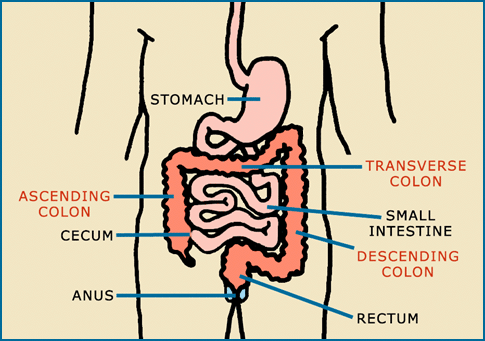
Do enemas help to strengthen peristalsis in the colon? Does that help a person to become more regular?
Yes, enemas strengthen peristalsis (the involuntary contractions of your colon which push stool forward).
Why a person typically fails to have a bowel movement the day after taking an enema is usually due to what is called transit time, or the time it takes your body to complete the entire process of digestion and elimination. Improving peristalsis is just one factor in transit time.
▶︎ Enema Instructions & Recipes
What is the best time of day to do an enema?
It varies from person to person. Many people prefer doing enemas in the morning, but it's fine to do them any time of day that feels best for your body, and works best for your schedule. If you're doing a coffee enema alone, it's best to do this enema after a bowel movement. If you're doing a complete enema series, any time of day is fine, whether or not you've had a bowel movement.
Should I do an enema before or after eating?
This is a common question, and it really is a personal choice based on your own body's needs. I recommend eating small meals every couple of hours to help maintain regulated blood sugar levels, but some people will be more comfortable if they don't eat for at least a couple of hours before an enema. In terms of the effectiveness of the enema, however, what's most important is that you're comfortable and not rushed — that you're able to take your time.

What food should I be eating during a colon cleansing program?
I recommend following my Ten Days to Optimal Health dietary protocol. More information on this protocol can be found at the links below:
▶︎ 10-Day Detoxification and Cleansing Diet
▶︎ Ten Days to Optimal Health Book
▶︎ Colon Cleanse Meal Suggestions
What is the best body position for doing enemas?
The best body position is whatever position is most comfortable for you and creates the least anxiety. I recommend doing enemas lying down somewhere comfortable where you have easy access to a toilet. You can do an enema lying on your right side, your left side, or your back — whichever is the most effective and most comfortable for you. You can experiment with different positions to figure out what's right.
What temperature should the enema water be?
Ideally your enema water should be about body temperature — approximately 98°F or 37°C — or slightly warmer, but most importantly you should choose a temperature that feels most comfortable to you.
How do I do OHN's recommended enema series? How much soap / oil / salt / coffee do I use in each enema? How much water? How long do I hold the enemas?
▶︎ For all questions related to the enema series, please see our detailed enema series instructions.
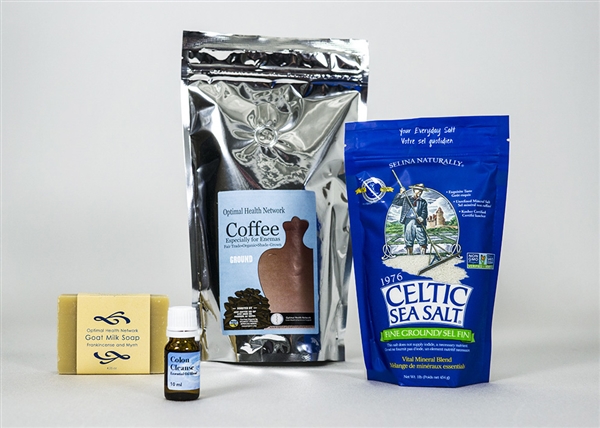
How often should I do enemas / the enema series?
This answer will vary a lot depending on the individual. Some people do the enema series daily, some people do it every other day or a couple times a week, once a week, once a month, every three months, etc. Many people find success doing the enema series 1-7 times per week, especially if you're trying to detox, heal from a specific issue, or improve the health of your gut microbiome. The general rule is that if enemas are making you feel better and not worse, do them as often as you want to or have time to. If you don't always feel better afterward, you might want to cut back on how frequently you're doing them.
▶︎ For more individualized support with your home enema series program or colon cleansing in general, please schedule a phone consultation with me.
How long does the enema series take?
Once they get the hang of it, most people are able to do the entire enema series process in about an hour. It will likely take longer the first couple of times you do it. This does vary from person to person, as some people's bodies are able to take in enema solution faster than others, so if your body is slower or you have to slow down due to cramping, it may take longer. But that's just fine. Don't rush it!
What should I do if I leak when I do enemas?
If you're leaking during an enema, it means you do not have the right size or shape of nozzle for your body. You likely either need a larger diameter nozzle (such as our Delrin enema nozzles) or an inflatable retention nozzle.
▶︎ Which Enema Nozzle Is Right for You?
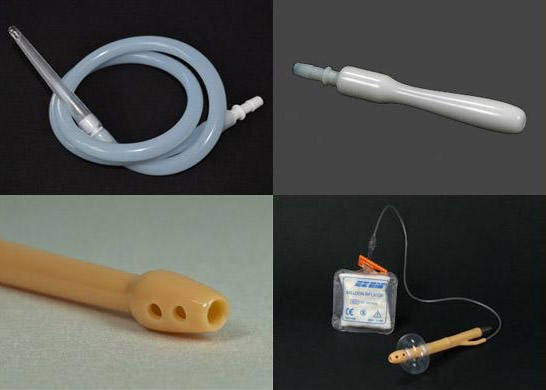
What should I do if the enema nozzle won't stay in?
Similar to any leaking issues, you are likely using a nozzle that is too small in diameter. Try changing the shape and/or size of your nozzle.
▶︎ Browse All Enema Nozzles
▶︎ Which Enema Nozzle Is Right for You?
Don't forget that a key part of taking a safe and successful enema is lubricating your nozzle well. I recommend using either Surgilube or therapeutic Super Salve as a lubricant.
What should I do if I can't hold a coffee enema for the recommended 12-15 minutes?
If you can't hold a coffee enema for the full 12-15 minutes, that's okay! Hold it for as long as you are able to. Some people's bodies get better at this over time with practice. You could also try using a retention nozzle, which can help with this issue. You are still receiving benefits from the coffee enema even if you can't hold it for that full time. Just do the best you can.
▶︎ How To Do a Coffee Enema: Recipe & Instructions
What if there's pain or discomfort when I do an enema?
While minor cramping is fairly common during an enema, you should not experience any severe pain or discomfort during or after an enema. If you do, stop doing the enema right away. Make sure to listen to your body during the enema process. Pain is usually a sign that something is not right for your body. If you experience mild cramping, I recommend slowing down, massaging the abdomen, and breathing through it until the cramping subsides. Then you can continue with the enema.

What if I feel worse after doing an enema than I did before?
You should always feel better, not worse, after doing an enema. Sometimes, when starting a cleansing/detox program with coffee enemas, there can be detox symptoms after the first couple of enemas as your body is shedding toxins, but any symptoms related to that should not continue past the first few enemas.
If you have significant discomfort, bloating, or pain, it may mean that you're using therapeutics in the enemas that your body is sensitive to, or something about the enema process (the nozzle, the amount of solution being used, the speed or position in which you're doing the enema) may need to be adjusted. Or it's possible that enemas are not for you.
▶︎ If you're experiencing difficulties with enemas, there may be a number of details you can change to make enemas work better for you. In this case I recommend setting up a phone consultation with me to try to determine what is causing the difficulties so that the issues can be addressed.
None, or not all, of the solution was evacuated from my body after the enema. Is this a problem?
This is fairly common! Sometimes your body will not evacuate some or all of the enema solution right away. You may evacuate later, or maybe not much at all. This isn't an issue unless it causes you pain or discomfort. To try to change this, it can sometimes be helpful to adjust the strength or type of therapeutics you're using in your enema solution, and/or adjust the amount of solution you're taking in. For example, if you don't evacuate after the second step of the enema series, try making the salt/essential oil solution a bit stronger, or try taking in less solution for that step.
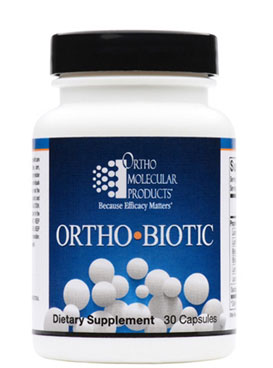
What should I do if I tried enemas and they're not for me?
While enemas are a great therapeutic tool, they may not be for everyone, and that's okay. There are alternative ways to support your body and your gut microbiome, such as through your diet, taking probiotics and other supplements, and through the use of essential oil suppositories.
▶︎ Read My Recommended Dietary Guidelines
It's a good idea for most people to take a daily probiotic, especially if you don't eat many probiotic-rich foods.
▶︎ Browse Probiotic Supplements
Suppositories can also be a great tool to use in addition to or instead of enemas. I frequently work with clients who use our Coffee Enema Essential Oil Blend in suppositories as an alternative to doing coffee enemas. We also have numerous other therapeutic essential oil blends that work very well in suppositories to support your body heal in a variety of ways.
▶︎ More Information on Essential Oil Suppositories
▶︎ You can always set up a scheduled phone consultation with me for more individualized support around how you can improve your health in many ways, with or without enemas.
What is the best method of making enema coffee?
The type and quantity of coffee you use is much more important than the method used to make it. You can make the enema coffee in whatever way is accessible to you — French press, coffee maker, drip coffee, pour over, or boiling the coffee with the grounds and then straining with a stainless steel or paper strainer. Any of these preparations with work, as long as you're able to get the grounds strained out. Just make sure you're using a made-for-enema coffee that is very lightly roasted, high in caffeine and palmitates, low in acid, and certified organic. Also it's best to make the coffee shortly before doing the enema. Coffee becomes more and more acidic as it sits, so I do not recommend making the coffee the night before and using it for an enema the next day.
Can I use other coffee besides Optimal Health Network's for a coffee enema?
We believe that our coffee is the best enema coffee on the market. We don't recommend using grocery store drinking coffee, even if it's organic. You can use other brands of made-for-enema coffee, as long as it's high in caffeine and palmitates, low in acid, very lightly roasted, and organic.
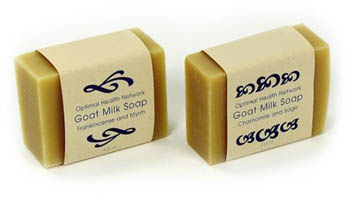
Can I use soaps other than your recommended soaps in an enema?
I don't recommend using most types of commercial soap in enemas, due to chemicals that they contain, and the lack of therapeutics. Our goat milk enema soaps contain therapeutic essential oils and butyric acid, which is the primary food source for the cells that line the colon and is extremely good for colon health. Some other natural soaps like castile soap or coconut oil soap also can be safely used in enemas, but they will still likely be much less beneficial and therapeutic than our goat milk enema soaps.
Which enema nozzle is right for me?
▶︎ Check out this article to learn more about our different nozzle options for your home enema program, and which one might work best for you!
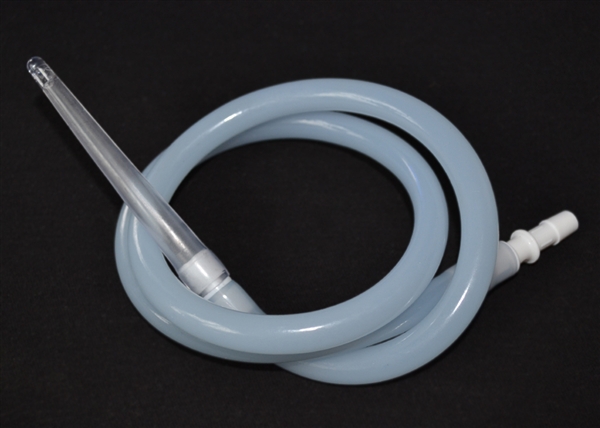
Are colon tubes safe?
Most colon tubes are safe to use. I recommend using non-toxic silicone colon tubes that are at least French 30-34 diameter. You run a higher risk of puncturing the colon with thin colon tubes. Never force a colon tube deeper into the colon if it's not being easily inserted. If you feel any pain, stop inserting the colon tube.
Our colon tubes have a detachable tip. The connection between the tip and tube can loosen over time with frequent use. Each time you use one of these colon tubes for an enema, ensure that the connection is still secure and tight. If it's not, it's time to replace the colon tube.
▶︎ Check out this article to learn more about our different nozzle options, and which one might work best for you!
▶︎ Browse Silicone Colon Tubes
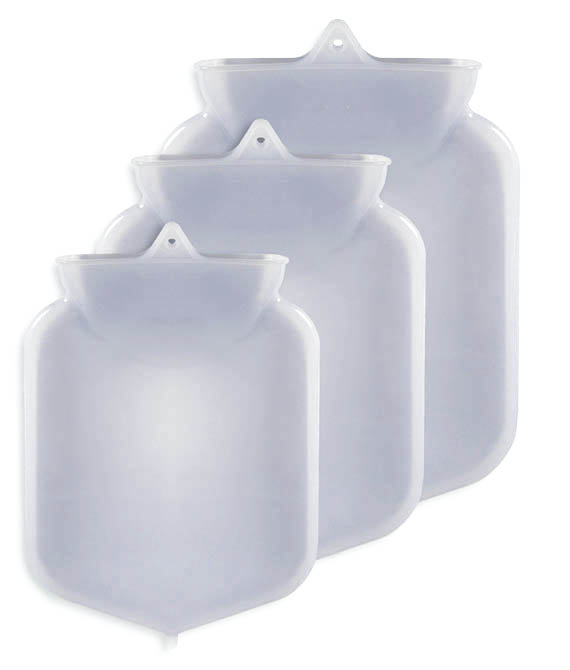
How do I know what size enema bag to buy?
Our 5-quart bag tends to be the most popular because it offers you the best potential to clear out the entire colon as you build confidence in your home colon cleanse program. It's better to have some surplus capacity (even if unused) rather than not enough capacity. Because it needs to support more weight, our 5-quart bag features two hook eyelets (one on each side) rather than the standard single eyelet found on our 2-quart and 3-quart bags. This second eyelet also adds more stability for hanging and thus provides a bit more security and peace of mind.
Generally we suggest a 3-quart bag if you are less than 5'5" (1.65 m) tall and weigh less than 135 lbs (61 kg). In this case a 3-quart bag should provide enough capacity to achieve a complete colon cleanse based on your body size.
We also offer a 2-quart bag (single hook eyelet) which tends to be popular among those taking strictly coffee enemas and/or preferring bags which are the easiest to store, clean, and travel with. Our 2-quart bag can be purchased as a stand-alone item or as part of our Easy Home Enema Kit or Enema Series Kit product lines.
Optimal Health Network guarantees the structural integrity of all of its silicone enema bags with a lifetime warranty. In the rare event that you need to replace a silicone enema bag due to defect or other failure in the course of normal prescribed use, please contact us to make arrangements for a prompt replacement at no charge.
When should I do essential oil suppositories? How frequently?
I recommend doing suppositories at night, right before bed, to give your body the whole night to absorb the essential oils. Alternatively, some people like inserting the suppositories right after doing the enema series. For most of our blends, and in general, I recommend doing one suppository daily (when healing from anal fissures, hemorrhoids, candida, etc.). But this does, of course, vary person to person, and I recommend setting up a scheduled phone consultation for specific guidance around doing suppositories!
▶︎ How To Make Essential Oil Suppositories
How can suppositories help heal anal fissures?
An essential oil suppository using coconut oil as a carrier oil is a therapeutic delivery system that is inserted into the rectum, where it melts and offers healing to the rectal area. Regular use of suppositories to deliver targeted essential oils is a useful addition to a home enema program if you struggle with anal fissures.
▶︎ Buy Anal Fissure Suppository Kit
▶︎ Anal Massage To Support Fissure Healing
▶︎ Learn More about Full Anal Fissure Healing Protocol
Can I heal an anal fistula naturally?
An anal fistula is an abnormal passageway connecting the anal canal and the skin surrounding the anus. Most anal fistulas (also known as fistulas-in-ano) are caused by an infection that begins in an anal gland, resulting in an abscess which drains but does not heal properly, leaving behind a fistula (tunnel) under the skin.
▶︎ Learn More about Healing Anal Fistulas Naturally
Can I do a coffee enema or a complete enema series if my gallbladder has been removed?
For most people, the answer to this is yes. Many of my clients who have worked with the enema series do not have a gallbladder. However, everyone's body and needs are different, so if you are doing the enema series or a coffee enema for the first time and you do not have a gallbladder, be sure to go slow and listen to your body. You can also schedule a phone consultation with me if you have any additional concerns.
Is it okay to do a coffee enema if I have high blood pressure?
It is best to check with your doctor if you have high blood pressure and are considering taking enemas. You can also use a blood pressure cuff as you take enemas to monitor any changes in your blood pressure, as any solution can change blood pressure. Avoid Fleet enemas. Coffee enemas do raise some people's blood pressure, but not everyone's.
DISCLAIMER: This material is presented for informational purposes only and is not a substitute for medical advice, diagnosis, or prescribing from a licensed healthcare professional. We make no claim or guarantee for cure or relief of any specific symptom, medical condition, or disease when using any of the products or protocols referenced here. Consult with a licensed healthcare professional before altering or discontinuing any current medications, treatment, or care, or starting any diet, exercise, cleansing, or supplementation program, or if you have or suspect you might have a health condition that requires medical attention.
By Kristina Amelong, CCT, CNC
I-ACT-Certified Colon Hydrotherapist
Certified Nutritional Consultant